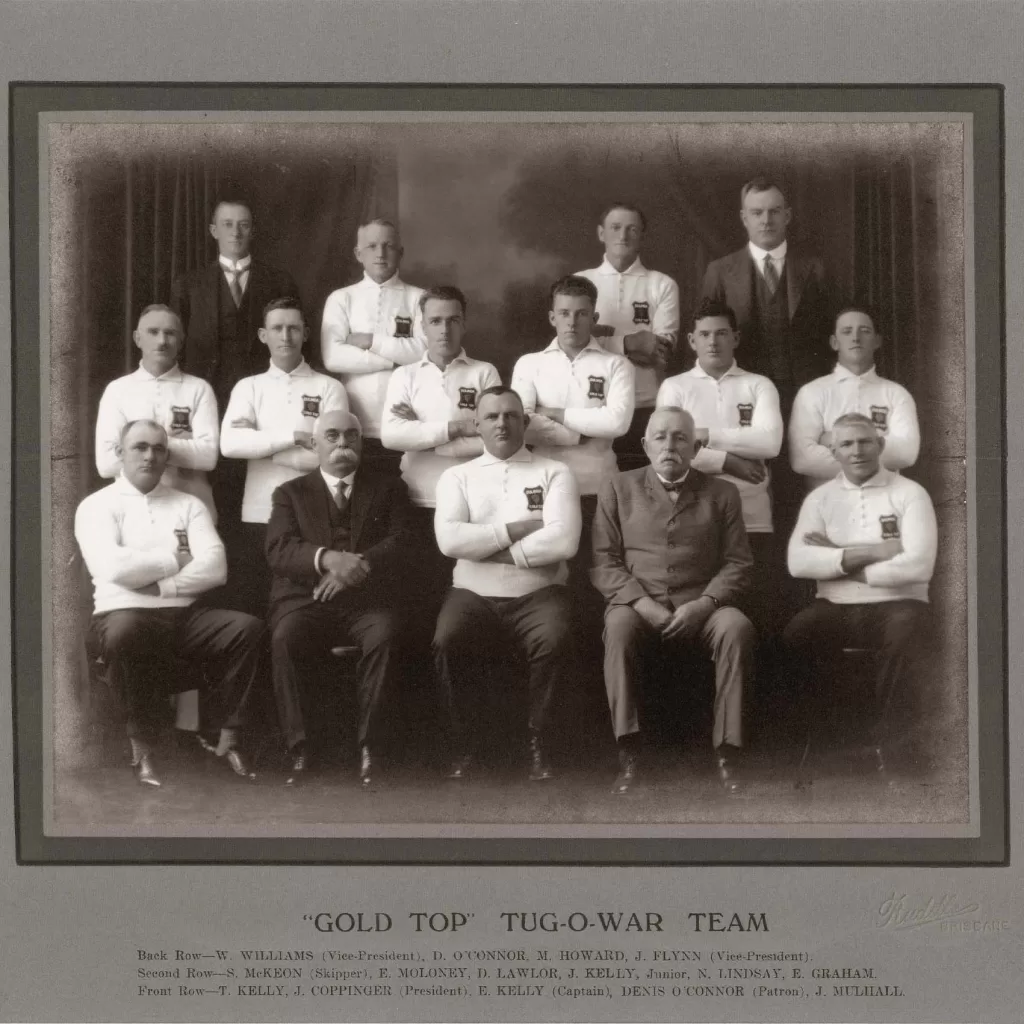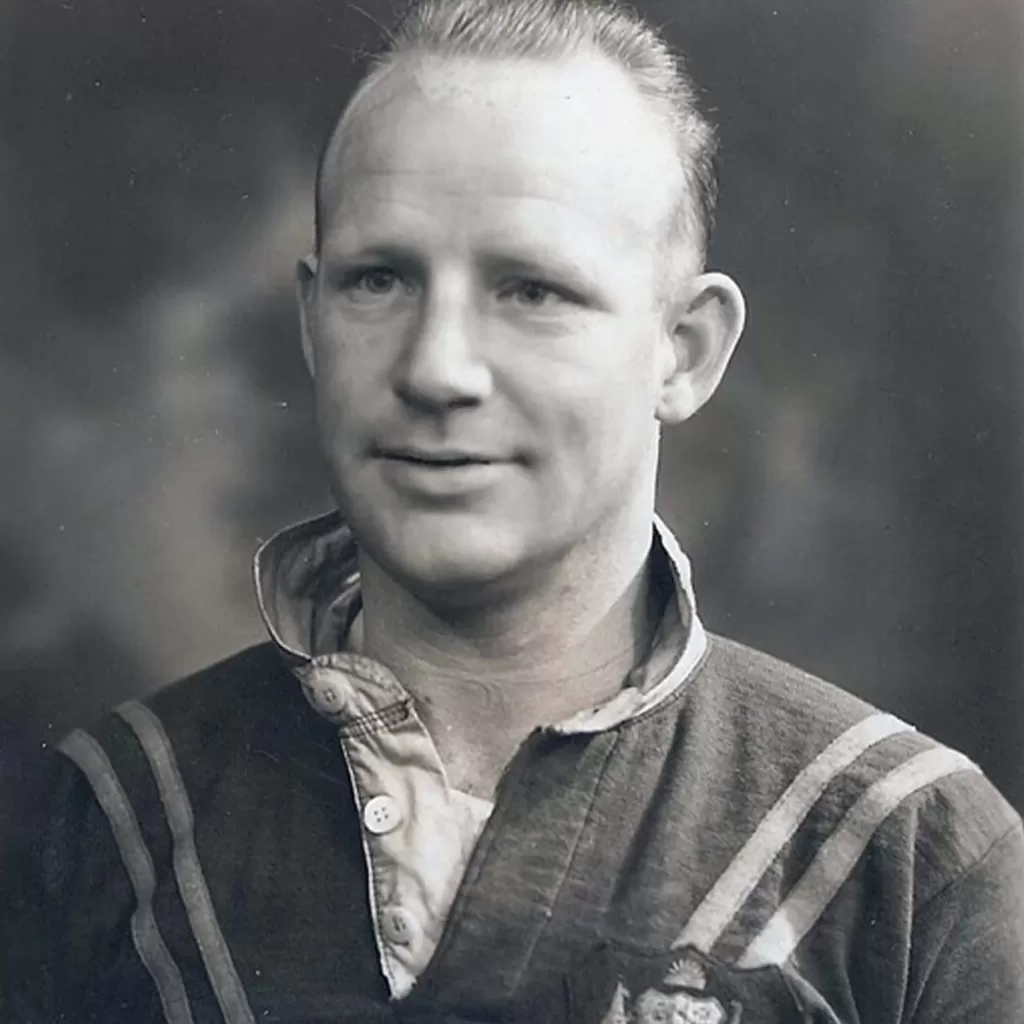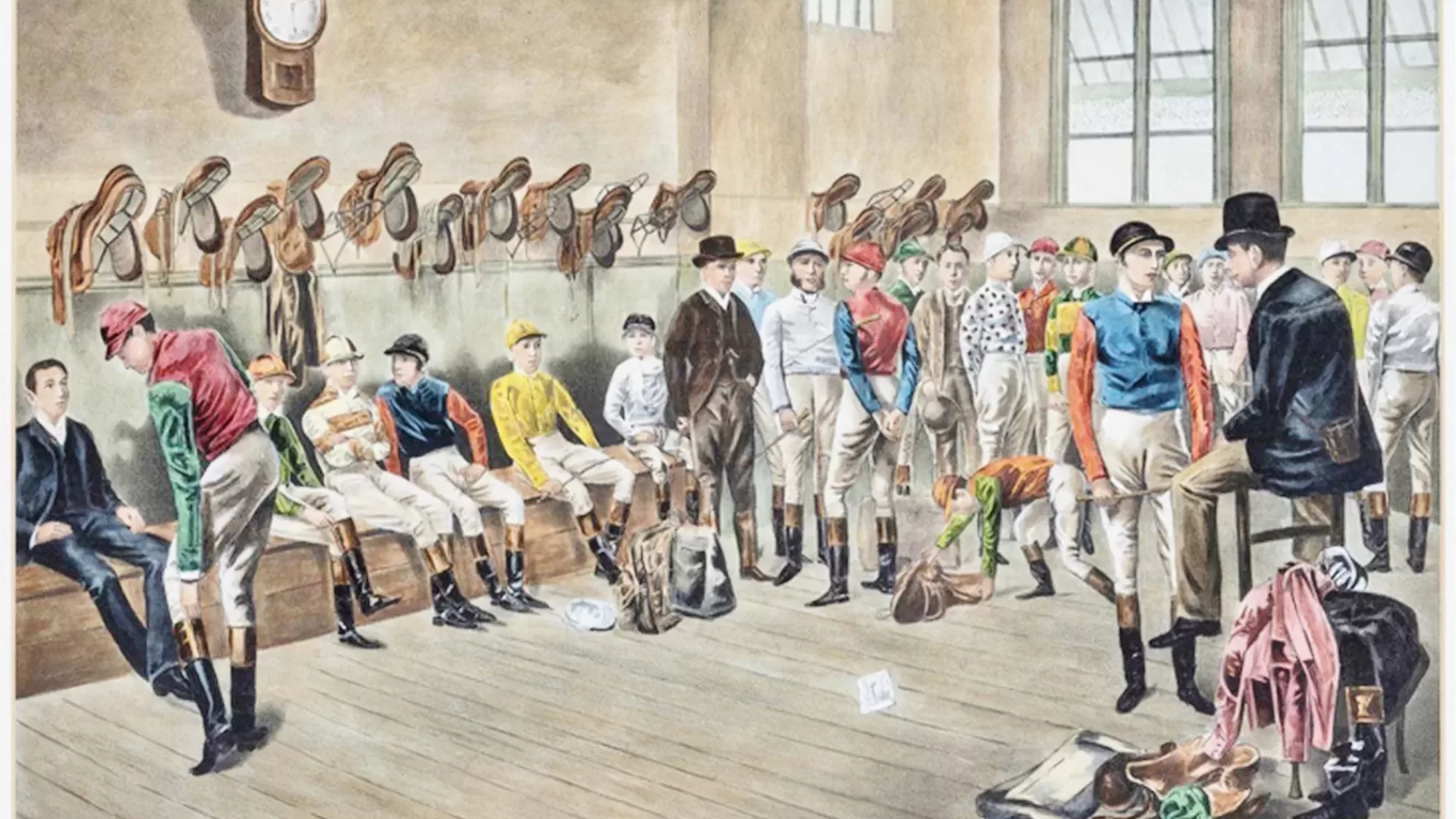‘Fred Coupland, Iandlord of the Prince Consort Hotel, was fined £10 yesterday for allowing the raffle of a horse to take place on his licensed premises.’ – Brisbane Courier, 4 December 1890.
Hotels, sports and gambling have always gone hand in hand.
Canny publicans have long known they could attract a larger clientele by hosting and sponsoring sports competitions.
Billiards, for instance, was a popular pastime in Brisbane’s pubs during the nineteenth century. Under the Publican’s Act of 1863 cards, skittles and other forms of gambling were illegal but playing billiards was allowed.
The original Prince Consort hotel included a billiard table when it first opened in 1863 and a dedicated billiard room when it was rebuilt in 1888. A visiting journalist remarked that:
“The billiard-room is large, airy, and effectively fitted up. It is well lighted, having two ordinary and two French windows … At the time of my visit, I noticed that a grand handicap billiard tournament was in process of organisation.”

By 1892 the Prince Consort was one of 34 hotels in Brisbane advertising billiard tables for its patrons. Its billiard room was “under the management of that well-known spot player, Mr William Edmonds, who will give his patrons any information they may require in respect to the game.”
Sporting prints were common motifs on hotel walls, reflecting the passions of publicans and patrons alike. The Prince Consort had a large parlour which featured coloured reprints of two English horse racing lithographs, ‘The Saddling Room at Epsom’ and ‘The Plantation at Newmarket’.
The hotel’s licensee during the early 1900s was Denis O’Connor, who owned a string of race horses and had been a champion rower in his youth. O’Connor used his sporting connections to entice touring rowing crews and football clubs to stay at his venue. In June 1910 he hosted a Maori rugby union team in town to play a Queensland team at the Exhibition grounds.
O’Connor maintained his sporting involvements after he left the hotel to become a director of the Queensland Brewery. During the 1920s he was the proud patron of the Brewery’s champion Tug-O-War team.
Hotels were places where sporting clubs met to elect their committees, celebrate their victories and commiserate over their losses. In 1889 forty “gentlemen” met at the Prince Consort to establish a local gymnastic club and pigeon fanciers started a homing pigeon society in 1894. The hotel hosted the Valley Senior Rugby League Football Club’s annual general meeting in 1932 and two years later fishing enthusiasts gathered to form the Brisbane Big Game Fishing Club.
Hotels also provided employment for retired sportsmen and athletes. The Prince Consort’s publican during the post-war period was Tom Gorman, a renowned former rugby league player who had been the first Queenslander to captain the Kangaroos on an overseas tour.

Gorman was a popular host. He often featured in press reports, whether accommodating visiting sports teams or being asked to retell events from his playing days. Trading on his name recognition, he issued a large promotional poster for the hotel which featured domestic and international cricket records.
Hotels have long been a venue for illegal gambling, much of it centred on horse racing. In the days before the TAB, bets had to be made with a licensed on-course bookmaker. Not everyone could get to the races, however, and many preferred the convenience of betting with illegal SP (or Starting Price) bookmakers.
Telephones, radios and race meeting broadcasts all helped make off-course betting popular as the Depression loomed.
Most hotels had a resident SP bookie. They and their clients risked arrest if detected but publicans usually escaped the police’s attention. In January 1931 Chief Police Magistrate Hewan Archdall expressed frustration after hearing evidence that a man had placed numerous illegal bets in the bar of the Prince Consort:
“What about hotel keepers? I am convicting men frequently for making bets, and in many instances it must be with the knowledge of the manager of the hotel. If these hotelkeepers are permitting illegal games on the premises they should be charged.”
Police did take action several years later, when licensee Ida Murphy was charged with “keeping a common gaming house”. Two plain clothes officers gave evidence that they had observed gambling and then placed bets with a hotel barmaid. Murphy admitted the charge and was fined £5 plus costs.
Attitudes toward gambling have changed in recent decades. Modern legislation allows many forms of betting to take place at hotels, from playing Keno and the pokies to backing a roughie in the fifth at Doomben. Old timers might argue that the only element missing nowadays is the accompanying thrill that came from having an illicit flutter with the resident SP bookie.
[By Valley-based historian Robert Allen]
Sources
1892 Pugh’s Almanac ‘Billiard Saloon’ listings
Brisbane Courier, 16 July 1888, 7 February 1889, 4 December 1890 and 13 January 1931
Courier, 2, 7 and 8 November 1863
Kirkby, Luckins and McConville, The Australian Pub, 2010
Maureen Lillie, ‘More than a passing trade: The social role of pubs’ in Brisbane: Relaxation, Recreation and Rock ‘n’ Roll – Popular Culture 1890 to 1990
Telegraph, 3 February 1894, 10 June 1910, 12 February 1932, 11 May 1934 and 12 August 1938
Queensland Brewery ‘Gold Tops’ Tug-Of-War team photo courtesy of David Mulhall
Queensland Figaro and Punch, 25 August 1888

